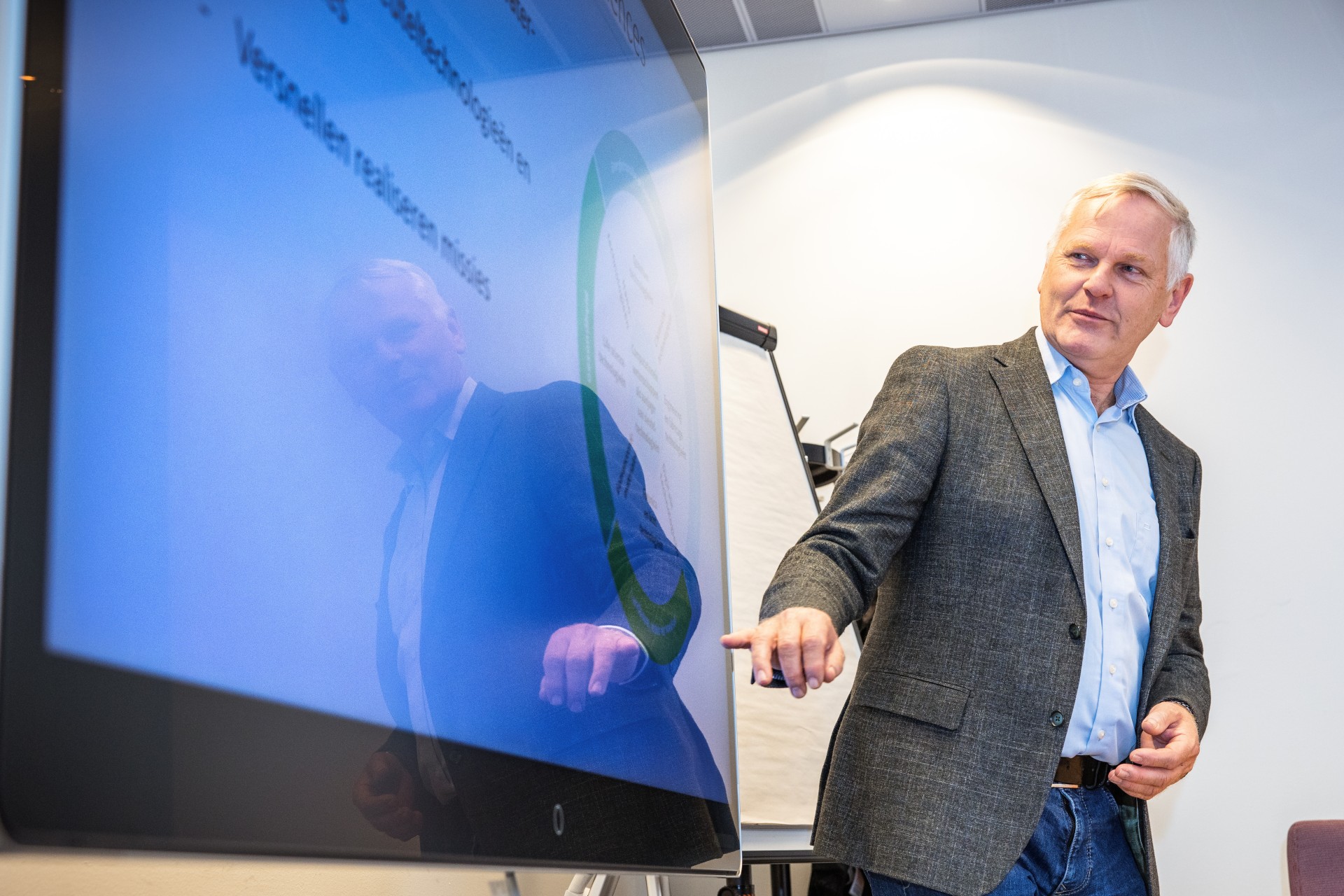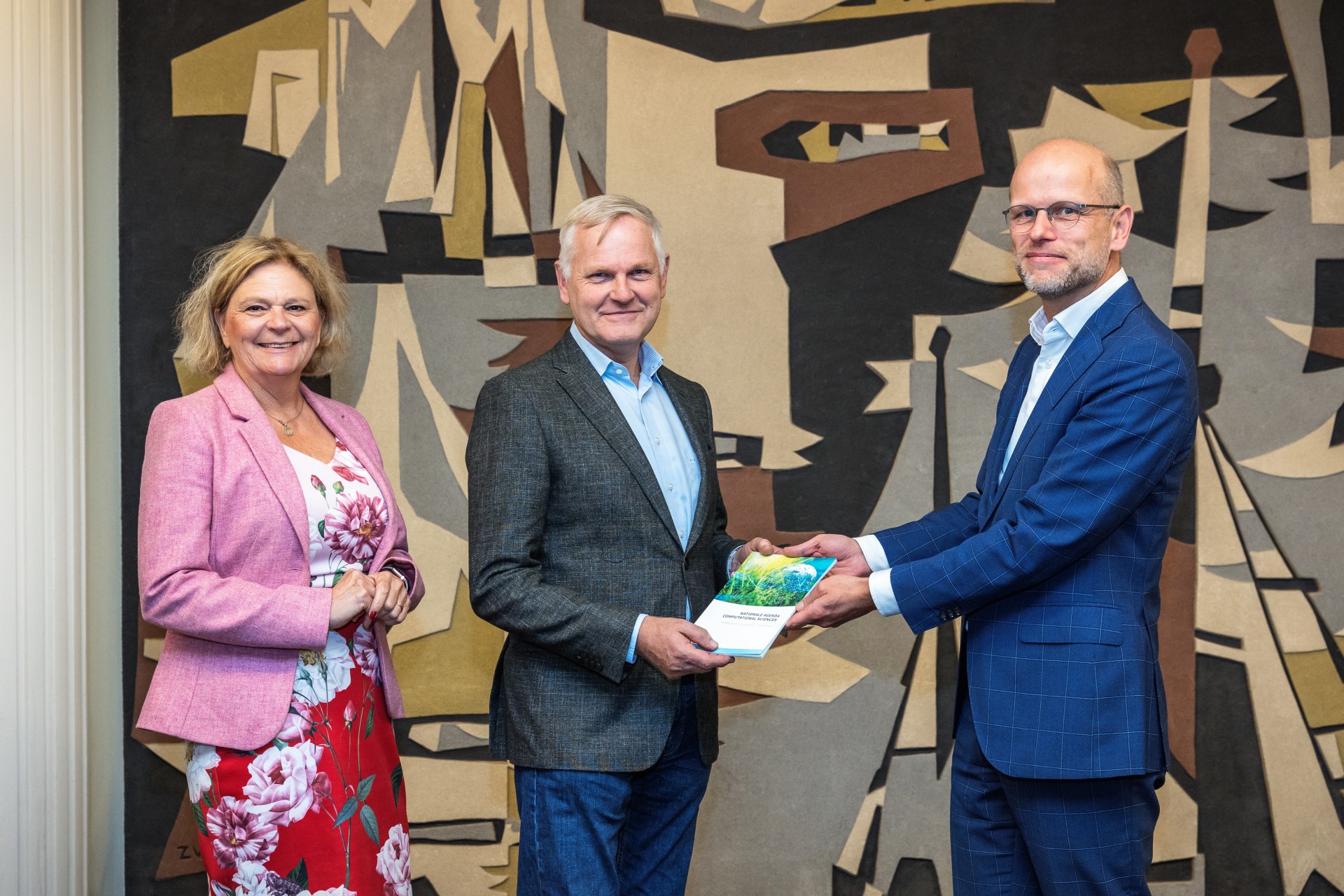How Computational Science can contribute to a sustainable future
From dealing with flooding due to climate change to optimizing energy from renewable sources: comprehensive computational models and computer simulations provide indispensable tools in tackling societal challenges. That is why Kees Vuik officially presented the National Agenda for Computational Science to the Director of Innovation and Knowledge of the Ministry of Economic Affairs and Climate, Michiel Sweers, on October 5. Vuik is professor of Numerical Mathematics at the Faculty of Electrical Engineering, Mathematics and Informatics (EEMCS). In the vision paper, experts from science and industry explain how revolutionary computing techniques and computational models can help solve the questions of our time. The core of the agenda consists of a roadmap and focal points for the future and application of Computational Science.
Arriving at the most sustainable solution with computational power
"The problems of our time, such as the transition to a sustainable future, are so complex that it is impossible to solve them with only theory or experiments," Vuik explains. "Indeed: to arrive at a solution in this complex matter, you have to work through countless predictions, and that can only be done with (super-)computers. Take the course of our rivers under a changing climate, for example; you can't test or theorize that. You need models and simulations for that. In other words, Computational Science."
The problems of our time we can only solve with computer models and simulations.
Strengthening the Dutch knowledge and innovation ecosystem around Computational Science is at the top of the agenda. First, all the different parties and networks in Computational Science should connect with each other. This way they can strengthen each other, exchange knowledge and realize innovations together. Another important item on the agenda is strengthening the Dutch computational infrastructure. That is, more investments in hardware, such as new supercomputers, but also in the development of the necessary software. The last item on the agenda is training, attracting and retaining (international) talent. The Netherlands could become a hotbed of Computational Science talent.
The strength of the Netherlands lies in our productive way of working together and The National Agenda Computational Science is a perfect example of that.
Michiel Sweers, Director of Innovation and Knowledge at the Ministry of Economic Affairs and Climate
Supercomputers in Delft
At TU Delft, supercomputers are also central to addressing the major societal challenges of our time. Last Friday marked the official opening of the DelftBlue supercomputer, as well as the fifth anniversary of the TU Delft Institute for Computational Science & Engineering, of which Kees Vuik is director and also one of the initiators. "We need supercomputers - for designing aircraft wings to doing climate predictions," adds Martin van Gijzen, who is involved in DCSE as a professor. In this article, Gijzen also explains why supercomputers are becoming increasingly important in solving societal challenges.
MORE INFO
A networking meeting to bring together the Computational Science community will be held on Oct. 18. The meeting is supported with funding from NWO, CCER, TU DELFT DCSE and Radboud University. More information about the network meeting: www.dutchcomputational.science
See the National Agenda for yourself at the following link: https://www.dutchcomputational.science/national-agenda/

